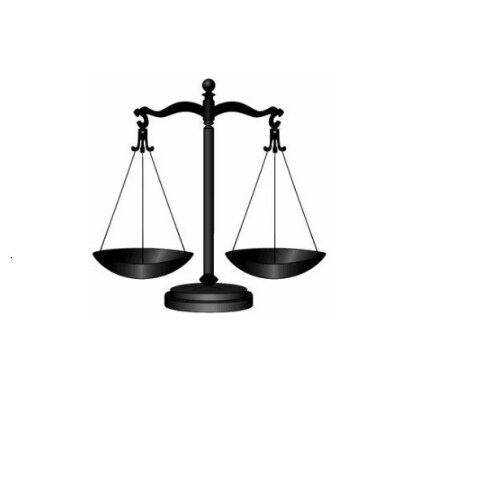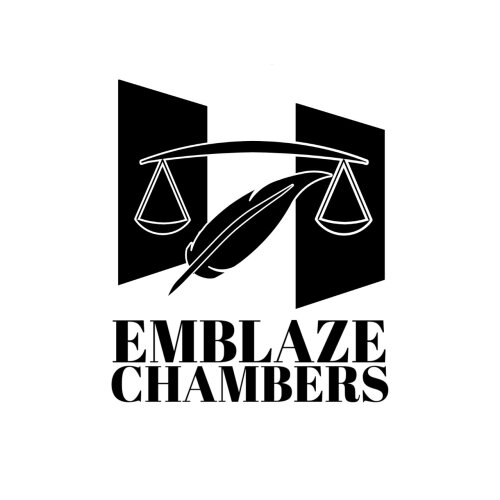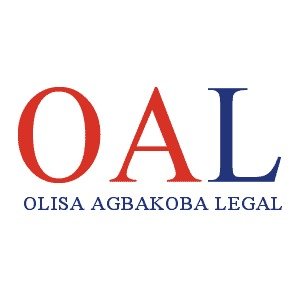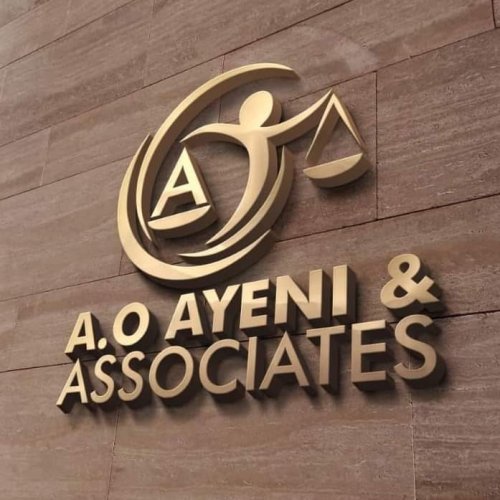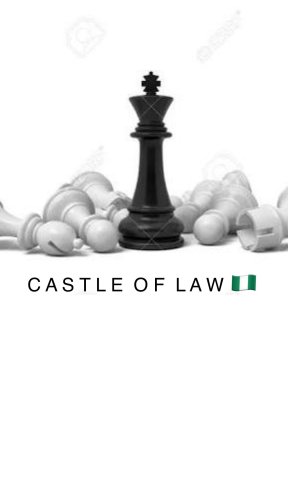Best Faith-Based Law Lawyers in Abuja
Share your needs with us, get contacted by law firms.
Free. Takes 2 min.
List of the best lawyers in Abuja, Nigeria
About Faith-Based Law in Abuja, Nigeria
Faith-Based Law in Abuja, Nigeria, refers to legal practices and principles that are influenced by religious beliefs and doctrines. Nigeria is a religiously diverse nation, with Islam and Christianity being predominant faiths, alongside traditional African religions. In Abuja, as in many parts of Nigeria, religious beliefs play a crucial role in shaping social and legal norms. Faith-based law typically involves marriage, divorce, inheritance, and moral conduct matters. The interplay between secular laws and religious laws can sometimes be complex, necessitating expert legal guidance.
Why You May Need a Lawyer
There are several scenarios in which individuals might require legal assistance in the realm of Faith-Based Law in Abuja:
- Marriage and Divorce: Issues arising from marriage contracts, including their formation and dissolution, may require harmonizing religious customs with secular law.
- Inheritance and Estate Planning: Faith-based principles often significantly influence decisions on inheritance, necessitating legal guidance to ensure compliance with both religious and national laws.
- Business Ethics: Entrepreneurs and business owners may seek legal advice on ensuring that their operations comply with ethical standards dictated by their faith.
- Dispute Resolution: Disagreements involving religious practices or instructions may require legal mediation or arbitration.
- Human Rights: Addressing conflicts between religious practices and human rights under Nigerian constitutional law can be complex.
Local Laws Overview
In Abuja, Nigeria, the legal landscape is characterized by a dual legal system that combines statutory and religious laws. Key elements include:
- Nigerian Constitution: Provides the framework for religious freedom and outlines the extent to which religious laws can be practiced.
- Sharia Law: Applicable primarily to Muslims, it deals with personal law matters and is recognized in several northern states, including some aspects applicable in Abuja.
- Canon Law: Governs issues related to the Roman Catholic Church, affecting Catholics in Abuja regarding marriage and church governance.
- Customary Law: These are informal legal codes derived from indigenous customs and traditions, which vary widely across different ethnic groups.
Frequently Asked Questions
What is Faith-Based Law?
Faith-Based Law encompasses legal principles and practices guided by religious beliefs and doctrines.
Can Faith-Based Law override national laws in Nigeria?
No, Faith-Based Law cannot override Nigeria's constitution, which is the supreme law guiding all other legislative frameworks.
How does Sharia Law fit into the legal system in Abuja?
Sharia Law primarily governs personal and family matters for Muslims. Its full legal application varies, but it complements the secular legal system in addressing certain personal issues.
Do Christians in Abuja also have Faith-Based Laws?
Yes, Canon Law and other religious doctrines can influence personal and ecclesiastical matters among Christians, though these operate within the boundaries of national laws.
Are there legal professionals specializing in Faith-Based Law?
Yes, there are attorneys in Abuja with specific expertise in bridging secular and religious legal matters.
Is Faith-Based Law applied in business contracts?
Occasionally, businesses owned by religious individuals may seek to incorporate Faith-Based ethical standards into their practices and contracts, within the allowed legal framework.
What role does customary law play in Abuja's legal system?
Customary Law addresses indigenous practices and customs, especially concerning marriage and land rights, operating alongside formal laws.
Can a person choose which law applies to them, Faith-Based or secular?
This often depends on the legal issue at hand and the individual's religious affiliation, with Faith-Based Laws commonly applying to personal matters.
How are conflicts between Faith-Based and National Laws resolved?
Conflicts are typically adjudicated in courts, with the Nigerian constitution serving as the ultimate guide in resolving legal disputes.
Is it necessary to have a lawyer for Faith-Based legal matters?
While not always necessary, legal counsel can be crucial in navigating complex interactions between Faith-Based and secular laws effectively.
Additional Resources
For further assistance or information, individuals in Abuja may consider reaching out to the following resources:
- Nigerian Bar Association: Offers information and referrals to lawyers specializing in Faith-Based Law.
- National Human Rights Commission: Can provide guidance on issues where human rights intersect with religious practices.
- Religious Institutions: Many churches and mosques have legal aid arms or can provide referrals to faith-friendly legal practitioners.
- Legal Libraries and Research Centers: These can offer resources and documents related to Faith-Based and customary laws.
Next Steps
If you seek legal assistance regarding Faith-Based Law in Abuja, consider the following steps:
- Identify Your Legal Needs: Clearly define the specific areas where you require legal advice or representation.
- Consult Legal Professionals: Engage with lawyers who specialize in Faith-Based Law to understand your rights and obligations.
- Prepare Relevant Documents: Gather required documentation, including religious and legal certificates pertinent to your case.
- Explore Mediation or Arbitration: Consider alternative dispute resolution methods if applicable to your situation.
- Attend Seminars and Workshops: These can provide a broader understanding and guidance on navigating Faith-Based Law.
Lawzana helps you find the best lawyers and law firms in Abuja through a curated and pre-screened list of qualified legal professionals. Our platform offers rankings and detailed profiles of attorneys and law firms, allowing you to compare based on practice areas, including Faith-Based Law, experience, and client feedback.
Each profile includes a description of the firm's areas of practice, client reviews, team members and partners, year of establishment, spoken languages, office locations, contact information, social media presence, and any published articles or resources. Most firms on our platform speak English and are experienced in both local and international legal matters.
Get a quote from top-rated law firms in Abuja, Nigeria — quickly, securely, and without unnecessary hassle.
Disclaimer:
The information provided on this page is for general informational purposes only and does not constitute legal advice. While we strive to ensure the accuracy and relevance of the content, legal information may change over time, and interpretations of the law can vary. You should always consult with a qualified legal professional for advice specific to your situation.
We disclaim all liability for actions taken or not taken based on the content of this page. If you believe any information is incorrect or outdated, please contact us, and we will review and update it where appropriate.



